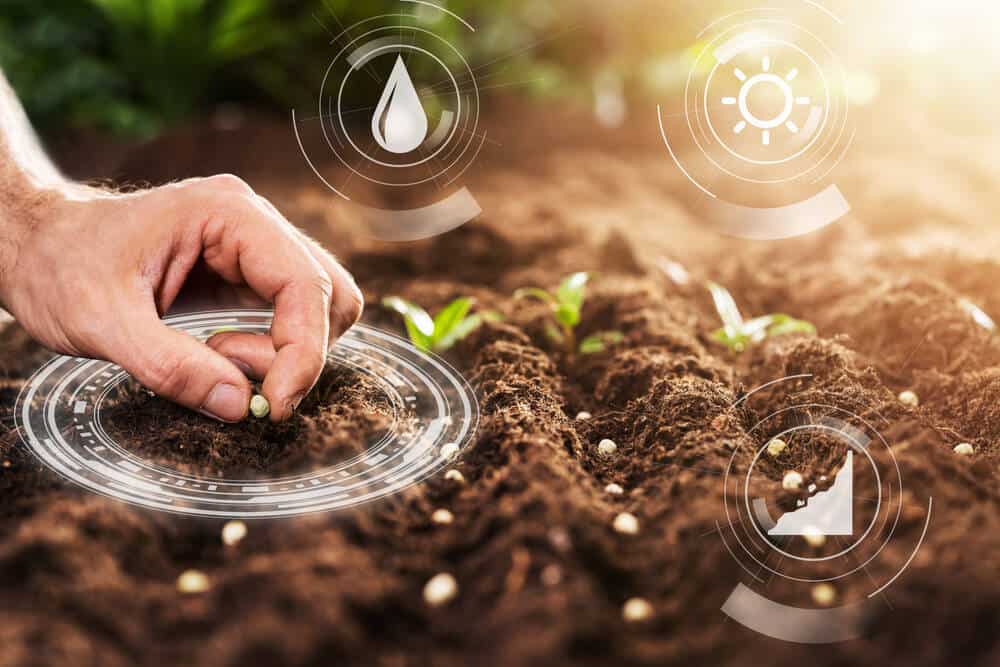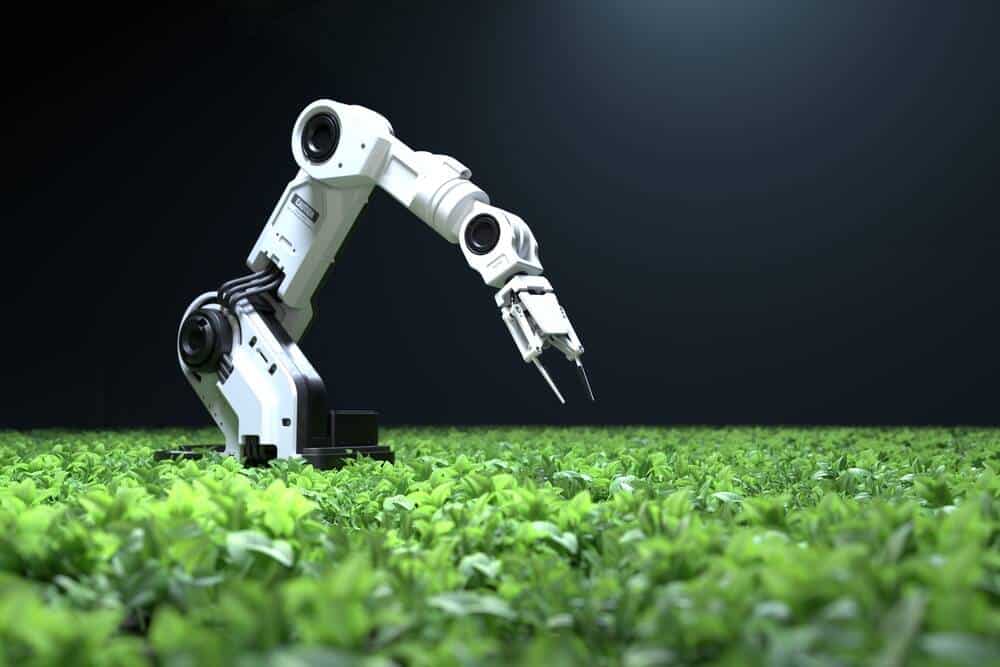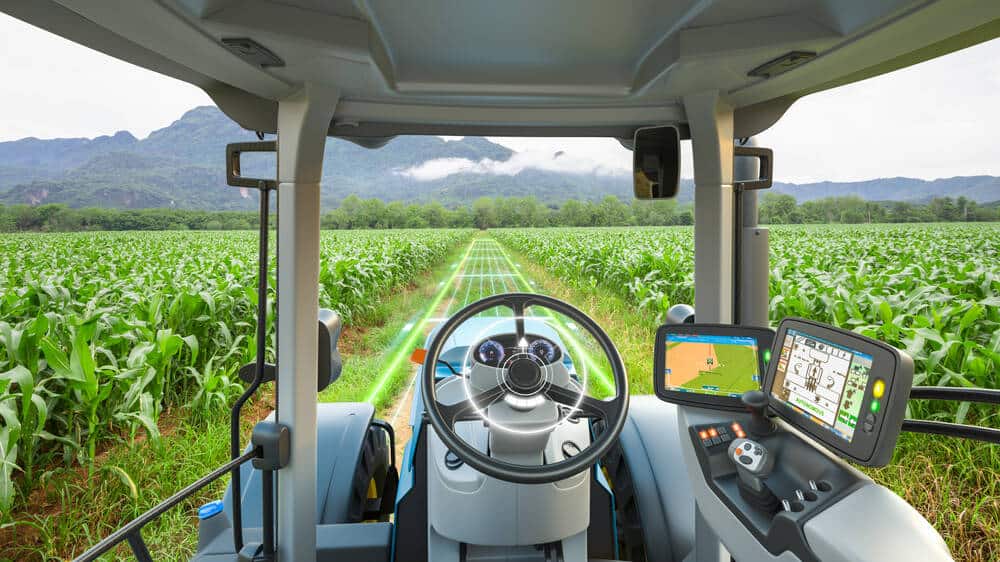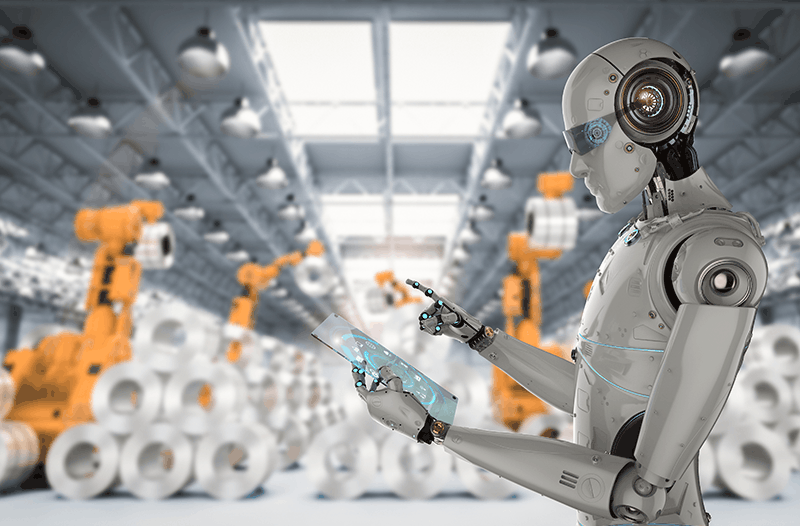- Japanese government pushing tech companies to grow vegetables
- Fujitsu’s Akisai software gets inexperienced farmers started in smart agriculture
- Sharp Electronics is farming Japanese strawberries in the deserts of Dubai
- Panasonic growing leafy greens in Singapore warehouse
- Toshiba’s factory farm is the stuff of science fiction
- A piece in the complicated puzzle of the future of food
At a time when Japanese agriculture is facing global competition, the Asian nation is aiming at making its farming industry more efficient, competitive and profitable by implementing smart agricultural projects. With Japanese electronics companies also searching for new sales channels and product lines, tech giants Fujitsu, Sharp, Panasonic and Toshiba have started converting their idle, empty factory buildings into high-tech plantations, introducing new types of farming that take full advantage of digital technologies such as the cloud, networks and sensors.
Japanese government pushing tech companies to grow vegetables
After hundreds of years of hard labour and low wages, the agricultural industry seems to slowly be turning into a high-tech, high profit sector. The transformation is the result of unpredictable weather patterns in Japan and the US such as heavy rains and droughts, making farming a risky enterprise. With many crops spoiled because of these unpredictable weather conditions, prices of agricultural produce have skyrocketed in recent years. The possibility of high returns in this sector is now drawing attention from high tech Japanese companies who, because of fierce competition from South Korea and China, have had to decrease their prices and are no longer as profitable as they once were. Many tech firms are facing problems, but the Japanese government is encouraging these companies to get involved in smart agriculture, expanding subsidies for advanced agriculture over the last few years. The number of high-tech agriculture plants has since increased fourfold.
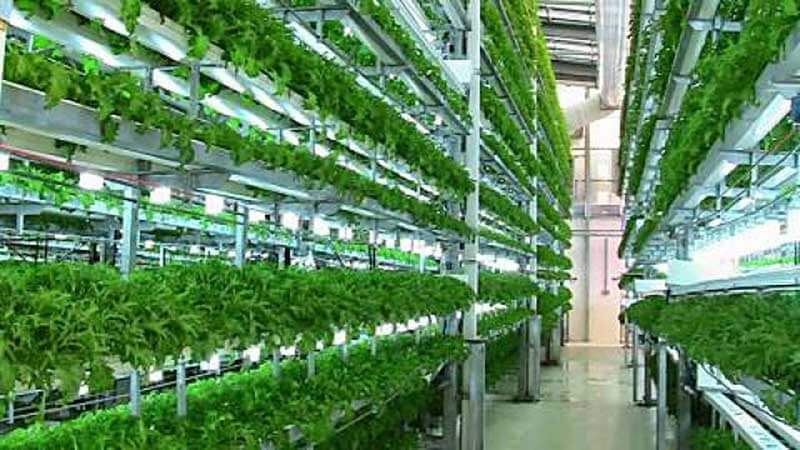
Fujitsu’s Akisai software gets inexperienced farmers started in smart agriculture
In collaboration with Vietnam’s largest IT company FPT, Fujitsu opened an agricultural base of 4000 m2, leased from the Ministry of Agriculture and Rural Development, in order to promote their agricultural cloud service technology Akisai. The facility is home to a closed, sterile factory where vegetable produce is grown under artificial lights and a greenhouse where high value vegetables such as high-sugar tomatoes and low-potassium leaf lettuce are cultured. The agricultural base is used as a showroom for the promotion of smart farming, involving companies from various industries as well as the Vietnamese government, and to contribute to the ongoing development of Vietnam’s agricultural industry. The two tech companies are also considering providing regular farmers with the Akisai software, in order to enable those with little experience in smart agriculture to get started. The software has easy-to-understand tips and graphics. Fujitsu is also advancing the Akisai agricultural cloud solution during pilots in greenhouse environments in the Finnish market where the tech giant will collaborate with Robbe’s Little Garden Ltd. which grows herbs and vegetables in Finland. Fujitsu will combine its technology with Finnish experts in LED lighting, environmental control and greenhouse automation technology. Greenhouse environments have not yet made extensive use of cloud solutions before, but in order to maintain optimal conditions, especially in larger, automated vegetable production facilities, this is becoming increasingly important. The Akisai system enables wireless monitoring and control of greenhouse operations via any mobile device.
Sharp Electronics is farming Japanese strawberries in the deserts of Dubai
The future of struggling Japanese electronics giant Sharp may depend on growing strawberries in a hermetically sealed farm in the deserts of Dubai – where the fruit is popular yet expensive, difficult to grow and quick to spoil. With its LCD television and smartphone revenues taking a sharp dive in recent years, Sharp is hoping it can create an agricultural engineering system focusing on technology that monitors crop growing conditions such as its energy efficient LED lights and sensors that track humidity and temperature. Sharp’s Plasmacluster air purification system helps protect the strawberries by eliminating suspended airborne mold, germs, viruses, dust mites and bacteria through the emission of positive and negative ions. Its sensor systems collect and analyse data about its cultivation techniques in order to optimise production. The cutting edge factory system technology can also be applied to other farm products and will be sold for approximately $820.000, which is about one tenth of the cost of conventional factory farms. In the future, Sharp wants to incorporate its solar panels into the system as well.
Panasonic growing leafy greens in Singapore warehouse
Another Japanese consumer electronics giant is venturing into indoor agriculture. Panasonic started growing vegetables in a Singapore warehouse in 2014, selling the produce to local restaurants and grocery stores. With LEDs replacing natural light, Panasonic’s leafy greens can be grown all year round. The LEDs also shine at specific frequencies, encouraging the crops to grow faster. In order to produce higher yields, the growing beds are stacked all the way up to the ceiling of the inconspicuous warehouse where over 80 tons of vegetables are produced annually, which is 0.015 percent of all vegetables produced in Singapore. Panasonic aims at eventually raising this percentage to 5 percent. Over forty kinds of vegetables are currently grown in the warehouse, including rocket lettuce, Swiss chard, rainbow chard, mini red and white radish and mizuna. Given Panasonic’s experience with manufacturing and engineering, and given the challenges around climate change and increasing populations as well as the worldwide shortage of cultivable land and the demand for stable and high quality and stable food supply, the company sees indoor agriculture as a potential growth portfolio.
Toshiba’s factory farm is the stuff of science fiction
Toshiba is yet another tech giant venturing into factory farming. Their incredible ‘clean’ factory farm in Yokosuka, Japan, produces no less than 3 million lettuces per year – without soil or sunlight. Thanks to temperature control, efficient lighting and computer monitoring, vegetables grown in indoor farms maintain their nutritional value while using up to 70 percent less fertilizer and 98 percent less water. The lettuces are injected with nutrients and vitamins, directly into their roots, and are continuously irradiated with LED lighting. Under these conditions, the lettuces can grow up to two-and-a-half times faster than their conventional counterparts. The lettuce inspectors with their tablets, face masks and full body suits look like they’ve come straight from a science fiction movie. The tech company’s goal is to grow the highest quality lettuce in the world that is free from fungi, insects or bacteria and requires no pesticides whatsoever. The lettuces are shipped in airtight bags, giving them increased shelf life. They are extremely clean and can be eaten without having to wash them first. In the next few years, Toshiba aims to build their factory farms all over the world, simultaneously marketing their high-tech systems to enable other factories to grow similar produce.
A piece in the complicated puzzle of the future of food
Factory farm systems and other farming operations that can grow vegetables efficiently using environment control technologies are opening up new possibilities for Japan’s agricultural sector which is suffering from challenges like a decreasing next generation and resultant labour shortages. Japanese tech firms have high hopes for exporting their crops; the sterile environments in which the vegetables are grown means that under refrigerated conditions, they can last for up to 2 months.
The first robotic lettuce factory will open in the middle of 2017 in Kameoka near Kyoto, where human workers will sow the seeds, after which robots will take care of the rest of the process. While crops haven’t quite reached export-scale production levels yet, they are expected to increase in the near future. In fact, five years from now, the facility will sprout no less than half a million organic lettuces every day.
While electronics firms having ambitious plans to contribute towards food security is quite noble, applying technology to agriculture is also making good business sense. Panasonic set a goal of producing 5 percent of locally produced crops by 2017 and plans to franchise its technology to existing conventional farms looking to get into indoor farming. The company’s goal is to take their technology to market this year. While these types of indoor farming facilities will never fully replace the traditional outdoor farms, they will play an important role in augmenting the supply of fresh produce in urban areas and could potentially be a piece in the complicated puzzle of the future of food.


